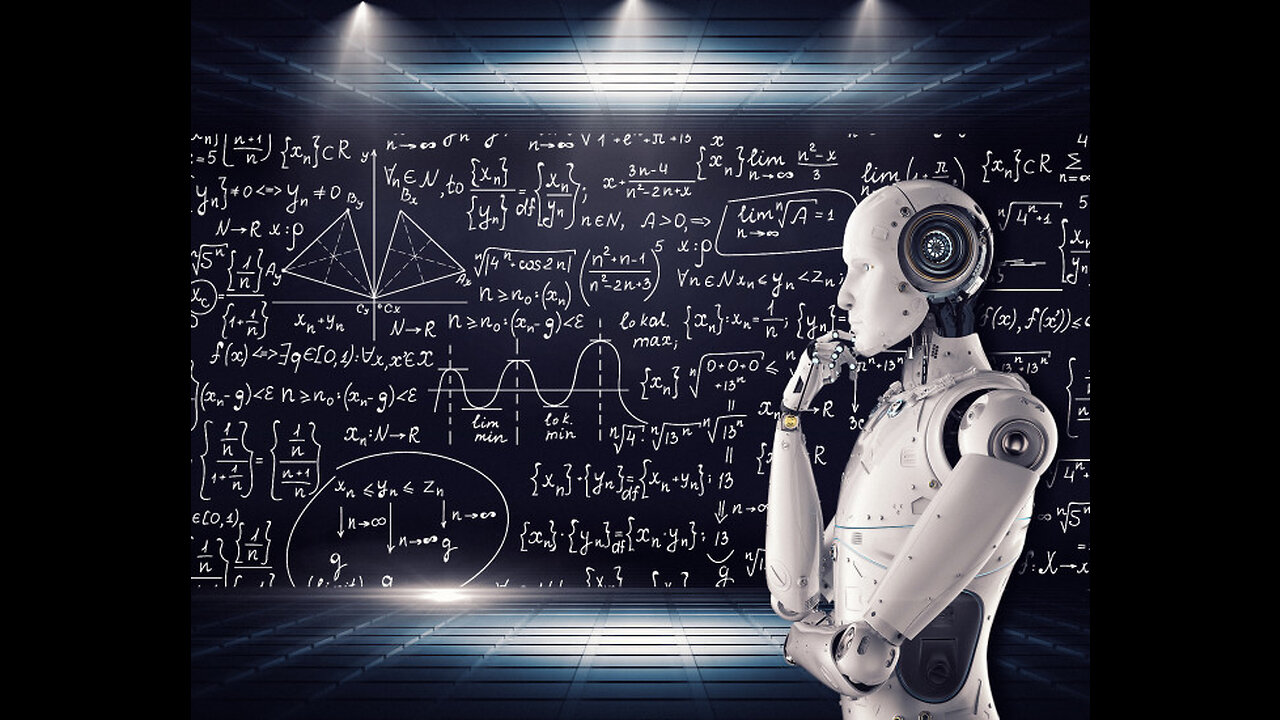Premium Only Content

How Does AI Affect Kids? Psychologists Weigh In - Decrypt
🥇 Bonuses, Promotions, and the Best Online Casino Reviews you can trust: https://bit.ly/BigFunCasinoGame
How Does AI Affect Kids? Psychologists Weigh In - Decrypt
Critics and skeptics of artificial intelligence regularly claim it threatens human jobs. But given its immediately disruptive potential in education, the interests of one demographic deserves equal scrutiny in the era of AI: children. Even before the internet and mobile devices, kids were already susceptible to forming bonds with toys. The lifelike interactivity of AI chatbots now represent a seismic shift. "Children can form deep relationships with inanimate objects, like a teddy bear—now you have this tool that gives you exactly what you need—because AI is going to be amazing at figuring out what you want to hear and giving that to you," psychologist and executive coach Banu Kellner told Decrypt in an interview. Kellner is the founder of the SuperHuman Society, which engages experts from diverse backgrounds to address the challenges and opportunities posed by artificial intelligence and other emerging technologies. Like a scene from the 2022 sci-fi horror film M3GAN , Kellner said children ascribe human characteristics to AI products like toys and games and establish bonds that might surpass their human relationships. This bond represents a significant problem, however, because the child may come to rely on AI and not learn to navigate complex human relationships. The challenge, Kellner said, is ensuring that AI products help children cultivate life skills, particularly social skills, that foster human engagement rather than replacing those human interactions altogether. As AI develops, companies are racing to bring the technology to the masses, including in education and entertainment. Education-focused companies using artificial intelligence include Carnegie Learning, Cognii, and Kidsense. On Tuesday, kid-centric technology company Pinwheel announced the launch of the “kid-safe” PinwheelGPT , designed for children aged 7-12, which the company claims generates only age-appropriate responses. "We've created a fun and educational way for today's kids to get in on the exciting power and potential of ChatGPT and accessing information on the internet but with safe, age-appropriate guardrails," Pinwheel CEO and Founder Dane Witbeck said in a statement. "Not only can kids participate in the AI tech that's quickly transforming our world, but parents can be actively engaged in the conversation—by viewing and stepping in when or where it feels right—to provide guidance or clarification.” Last month, Khan Labs launched the beta version of its Khanmigo for the Khan Academy learning platform. Khanmigo uses a chatbot to interact with students mimicking historical figures, including U.S. President Abraham Lincoln, Warlord Genghis Khan, British Prime Minister Winston Churchill, and U.S. Civil War spy and Underground Railroad conductor Harriet Tubman. Kellner emphasized that the primary concern lies not just with AI but specifically with artificial intimacy, referring to the emerging AI products that simulate relationships—like AI friends or romantic partners—which are already available in the market and will only improve with time. In June, a former Google executive, Mo Gawdat, claimed that virtual and augmented reality would one day allow people to have virtual sexual experiences indistinguishable from reality. Gawdat said the next likely step would be sex with physical robots. “If we can convince you that this sex robot is alive or that sex experience in a virtual reality headset or an augmented reality headset is alive, it’s real, then there you go," he said. Adding to Kellner’s concern for future generations, especially in Western countries, is the so-called epidemic of loneliness that U.S. Surgeon General Vivek Murthy declared a public health crisis. To deal with this loneliness, even if against most experts’ advice, some people have turned to AI companions and chatbots like OpenAI's ChatGPT to address mental health concerns. “While AI chatbots can offer instant mental health support, they cannot replace the nuanced and empathetic care provided by human therapists,” Dr. LeMeita Smith, a Dallas-based clinical therapist with Aurora Behavioral Health System, told Decrypt in an email. “Relying solely on AI-driven mental health interventions may neglect the depth of emotional support required for certain conditions.” In July, a 21-year-old English man stood trial...
-
 1:36:21
1:36:21
Sarah Westall
6 hours agoViolence Erupting in the Panama Canal, Identifying Enemy Infiltration, Psyops Ongoing w/ Michael Yon
34.9K25 -
 1:56:25
1:56:25
Nerdrotic
9 hours ago $11.98 earnedThe Red Pyramid's Hidden Secrets | Forbidden Frontier #091
48.9K13 -
 2:08:53
2:08:53
vivafrei
17 hours agoEp. 252: Liberals DISQUALIFY Candidate from Race! DOGE Wins & Loses; Rumble Sues BRAZIL! & MORE!
133K227 -
 1:15:12
1:15:12
Josh Pate's College Football Show
8 hours ago $15.68 earnedCFB’s Top 12 Programs | TV Executives & Our Sport | USC Changes Coming | Early Championship Picks
66.2K2 -
 LIVE
LIVE
Vigilant News Network
12 hours agoUK Government BUSTED in Secret Plot to Extract Your Data | Media Blackout
1,598 watching -
 1:03:32
1:03:32
Winston Marshall
3 days ago"War On Children!" The DEMISE Of The West Starts With Schools - Katharine Birbalsingh
111K65 -
 48:02
48:02
Survive History
15 hours ago $6.57 earnedCould You Survive as a Sharpshooter in the Napoleonic Wars?
60.8K3 -
 12:03
12:03
Space Ice
15 hours agoSteven Seagal's China Salesman - Mike Tyson Knocks Him Out - Worst Movie Ever
44.6K16 -
 11:37
11:37
Degenerate Jay
15 hours ago $14.75 earnedJames Bond Needs Quality Over Quantity From Amazon
92K8 -
 15:23
15:23
Misha Petrov
15 hours agoTrad Wives & Girl Bosses Go to WAR!
70.5K45